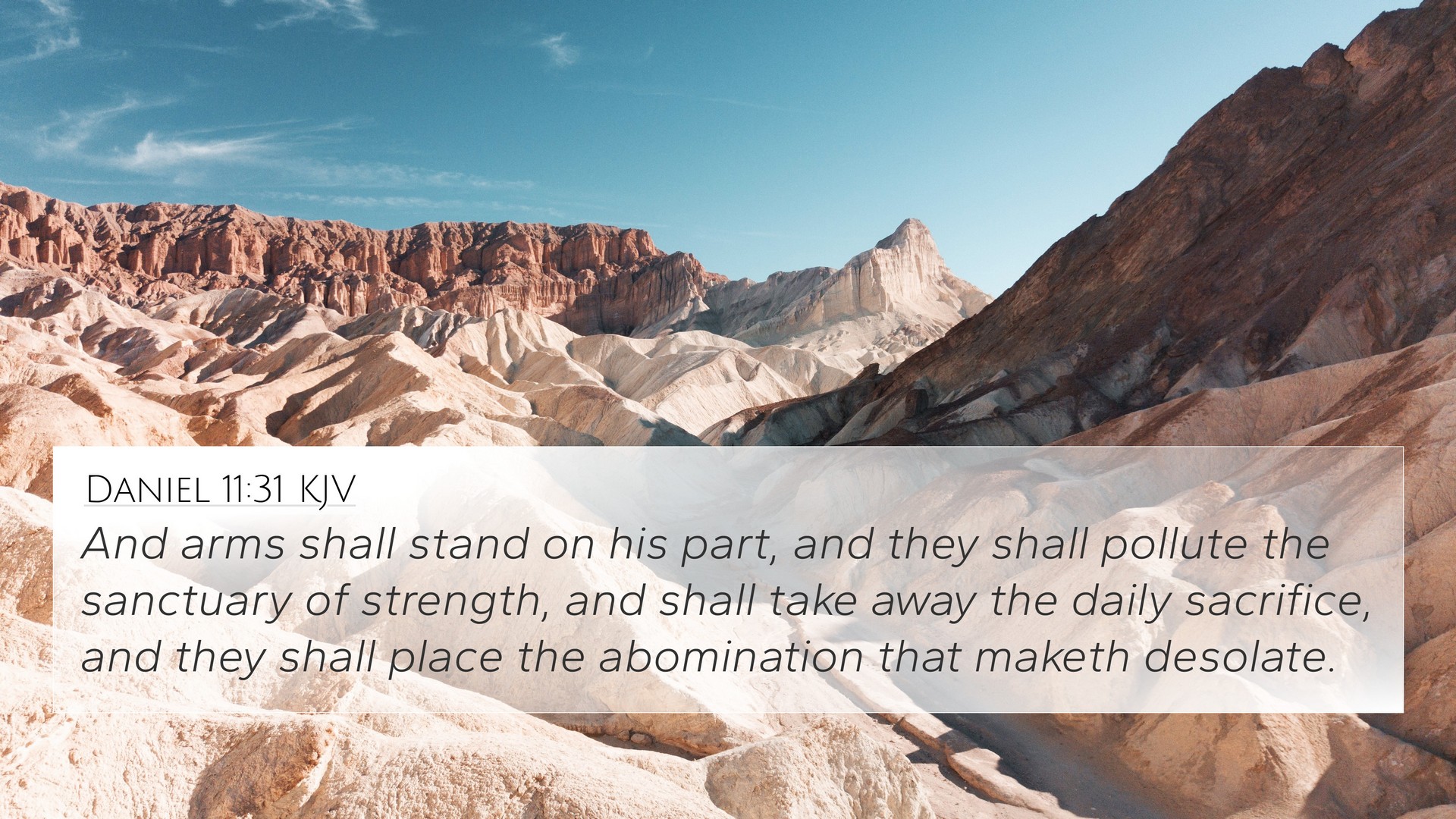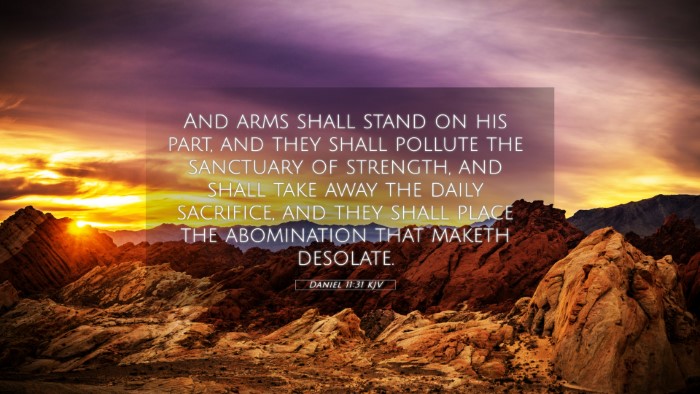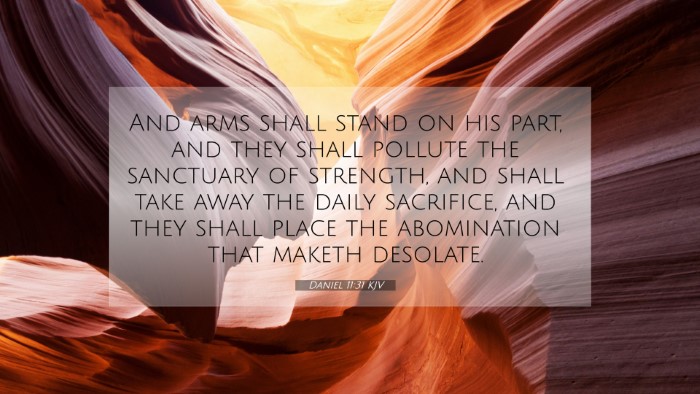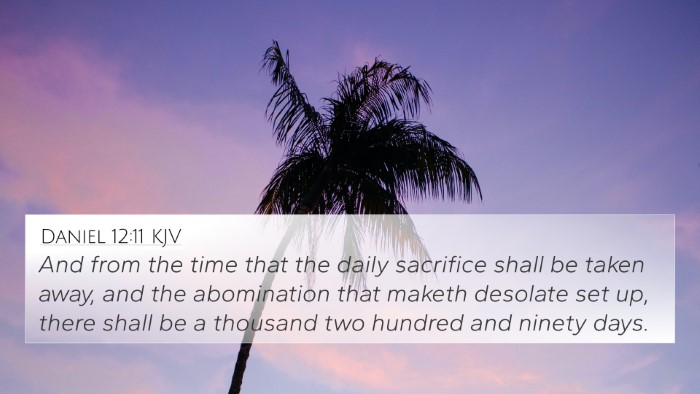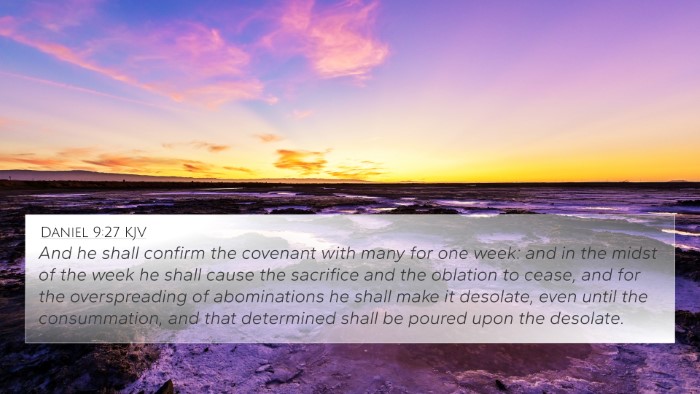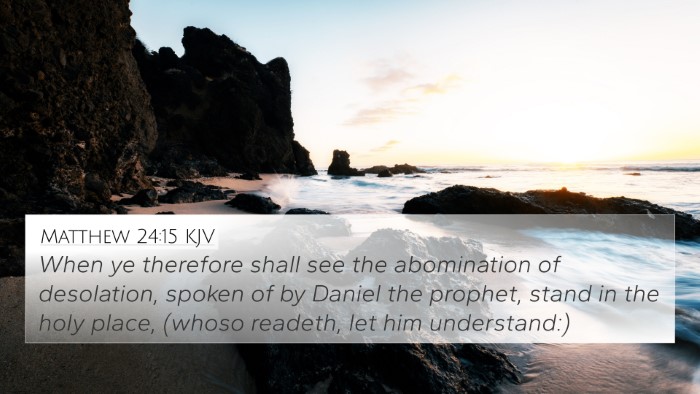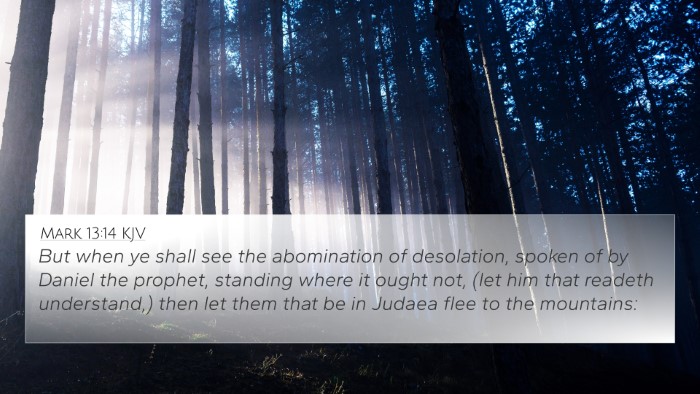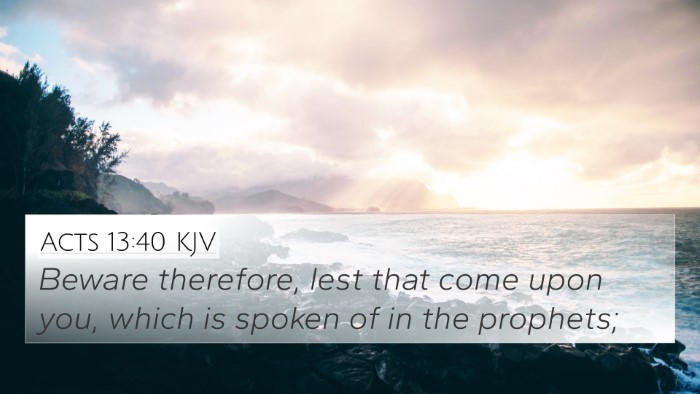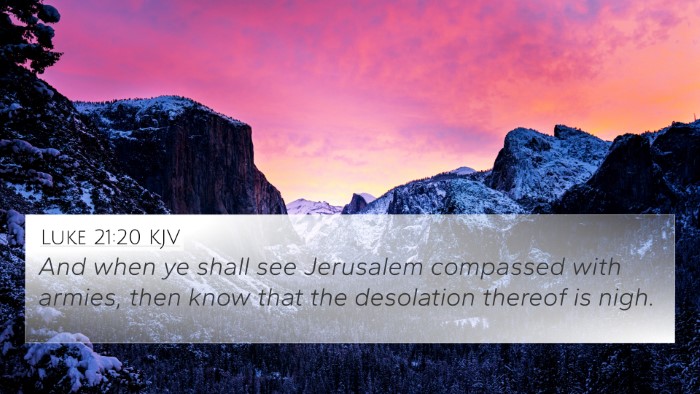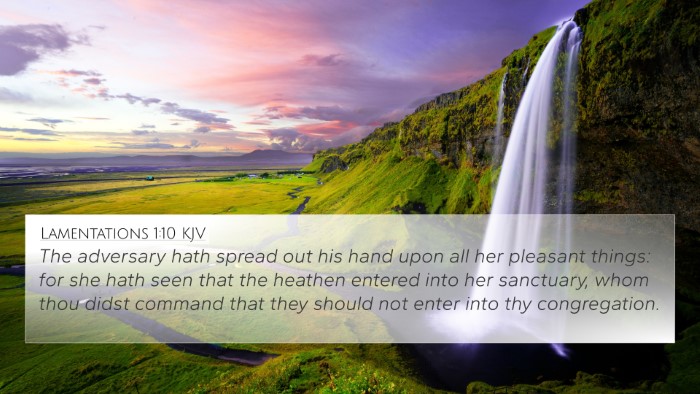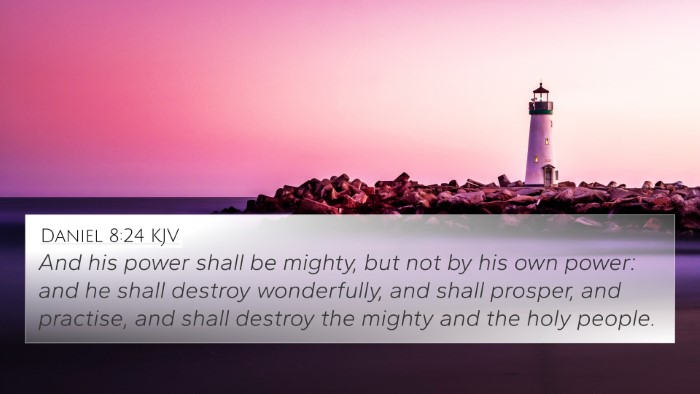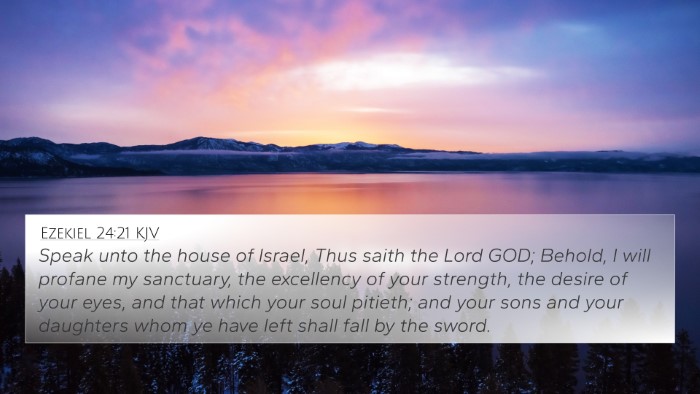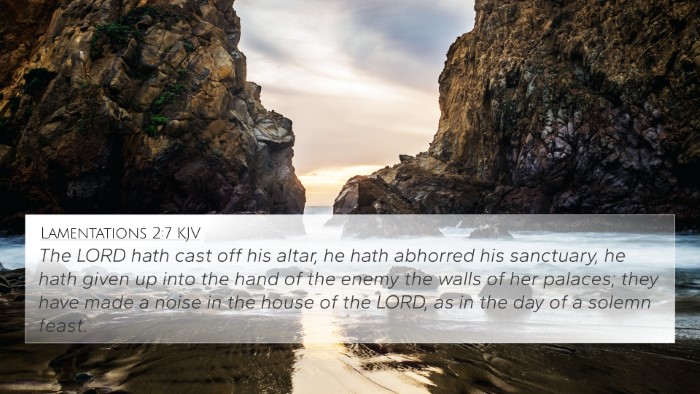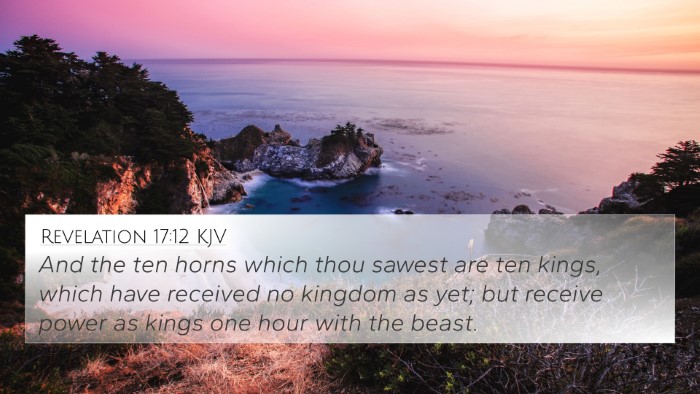Understanding Daniel 11:31
Daniel 11:31 discusses a time period marked by the actions of an oppressive leader. This scripture presents a vivid portrayal of conflict and the struggle between forces of good and evil. The verse states:
"And arms shall stand on his part, and they shall pollute the sanctuary of strength, and shall take away the daily sacrifice, and they shall place the abomination that maketh desolate."
Overview of the Verse
This verse highlights several key themes:
- Arms and Military Power: The "arms" refer to the military strength that will support this antagonistic leader, suggesting his reign is characterized by violence.
- Pollution of the Sanctuary: The mention of the "sanctuary of strength" indicates a significant violation of sacredness, representing a direct assault on faith and worship.
- Daily Sacrifice Abolished: The cessation of the daily sacrifice symbolizes the end of regular worship and fellowship with God, indicating a severe spiritual crisis.
- The Abomination of Desolation: This phrase foreshadows a significant desecration, often interpreted as a prophecy of future events concerning the temple.
Commentary Insights
According to Matthew Henry, this verse illustrates the tyranny of a leader whose actions lead to national and religious calamity. He emphasizes that such tribulations serve as a reminder of God's sovereignty and the need for vigilance among believers.
Albert Barnes asserts that this prophecy not only applies to historical events surrounding the Maccabees but also indicates larger eschatological implications. He suggests that the verse serves as a warning against turning away from divine truth.
Adam Clarke elaborates on the "abomination" mentioned, drawing connections to other Scriptures that speak of desecration of holy spaces, particularly pointing out its prophetic connections to the New Testament references regarding the end times.
Cross-References and Thematic Connections
Daniel 11:31 is interconnected with several key Bible verses, illustrating consistent themes of conflict, divine judgment, and the ultimate triumph of God:
- Matthew 24:15: "When ye therefore shall see the abomination of desolation, spoken of by Daniel the prophet, stand in the holy place." This New Testament reference directly connects to Daniel's prophecy, reinforcing the significance of spiritual vigilance.
- Luke 21:20-22: Describes the siege and destruction of Jerusalem, illustrating the fulfillment of Jesus's words regarding the ending of sacrificial observances.
- 1 Maccabees 1:54: Reflects the historical context of this prophecy as it relates to the desecration of the Jewish temple.
- Revelation 13:5-8: Speaks of a beast that continues the themes of tyranny and oppression against the faithful.
- Hebrews 10:25: Encourages believers not to forsake assembling together, in opposition to the abandonment foretold in Daniel's prophecy.
- Isaiah 63:10: Discusses how Israel's rejection of God leads to judgment and desolation.
- 2 Thessalonians 2:3-4: Discusses the "man of sin" showing himself in the temple, indicative of similar themes of deceit and desolation.
Applications for Study
For believers today, understanding Daniel 11:31 fosters a deeper awareness of spiritual realities and past historical fulfilments that echo in the present. It encourages:
- Deepening personal faith and dedication in the face of trials.
- Using Bible concordances and Bible cross-reference guides to explore linked scriptures that shed light on themes of perseverance and hope in the midst of persecution.
- Engaging in cross-referencing Bible study methods to identify connections between Old and New Testament scriptures concerning prophetic warnings and God’s faithfulness.
In conclusion, the detailed study of Daniel 11:31 in light of traditional commentaries not only elucidates its meaning but also encourages believers to remain steadfast in their faith amidst adversity, fully aware of the scriptural connections that inform their spiritual journey.
